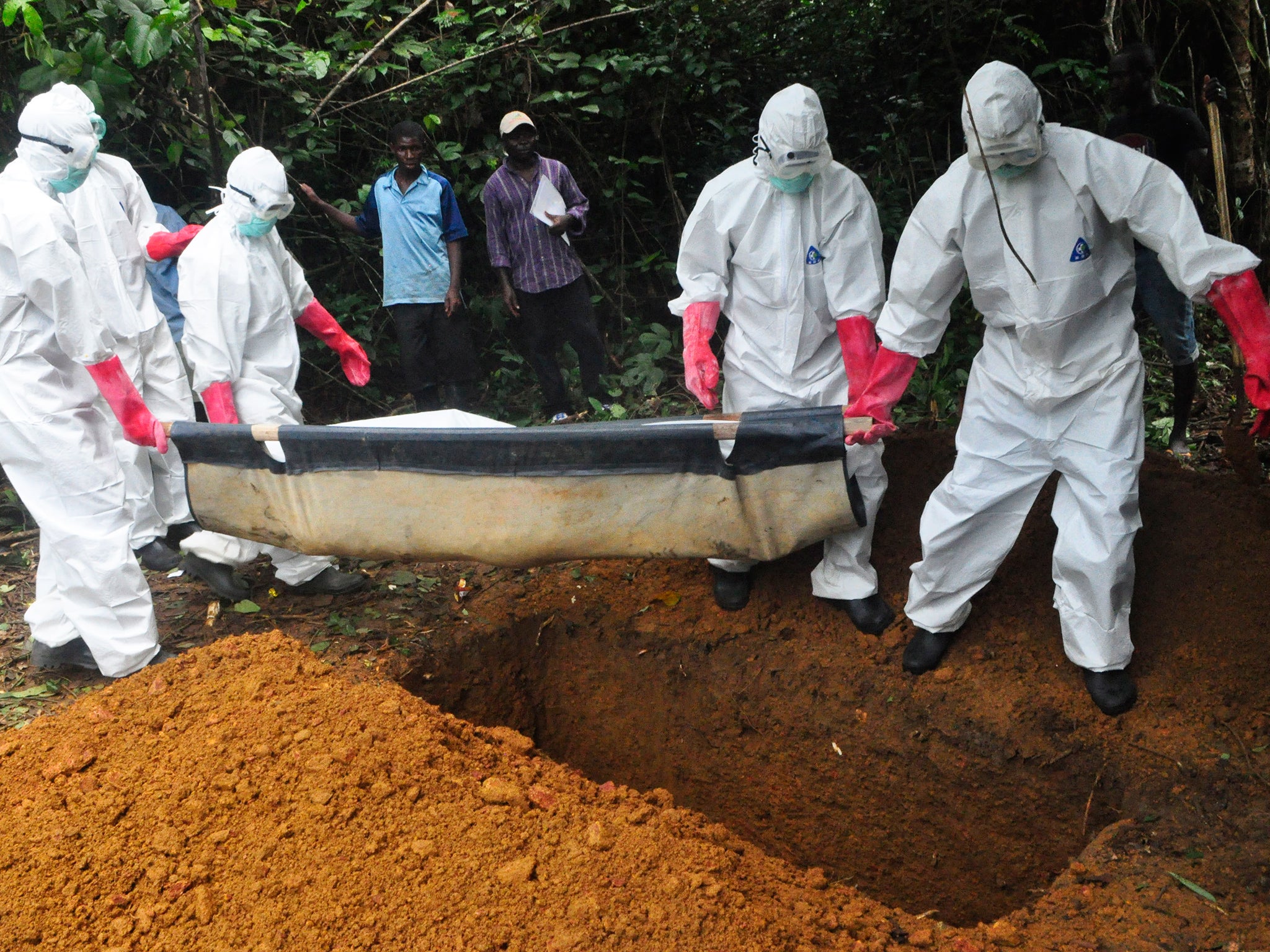Ebola outbreak: Donations from the British public will aid safe burial of victims
Local burial customs aiding spread of disease

Your support helps us to tell the story
From reproductive rights to climate change to Big Tech, The Independent is on the ground when the story is developing. Whether it's investigating the financials of Elon Musk's pro-Trump PAC or producing our latest documentary, 'The A Word', which shines a light on the American women fighting for reproductive rights, we know how important it is to parse out the facts from the messaging.
At such a critical moment in US history, we need reporters on the ground. Your donation allows us to keep sending journalists to speak to both sides of the story.
The Independent is trusted by Americans across the entire political spectrum. And unlike many other quality news outlets, we choose not to lock Americans out of our reporting and analysis with paywalls. We believe quality journalism should be available to everyone, paid for by those who can afford it.
Your support makes all the difference.Donations from the British public will be used to “significantly increase” support for volunteers risking their lives to safely bury Ebola victims in West Africa, the Disasters Emergency Committee (DEC) has said.
The DEC, whose unprecedented Ebola Appeal was launched earlier this week, said that its partner agencies were planning to assist in the “safe and dignified burial of potentially tens of thousands of people”.
Funeral customs in the region, which can involve washing, touching and kissing the bodies of the dead, are believed to have played a major part in allowing the virus to spread quickly through communities.
The bodies of the dead remain infectious after death and US researchers yesterday said that such funerals had been “super-spreader events”.
Changes in funeral practices would be the “single most important, practical step” in reducing the number of infections, said experts from the universities of Yale and Oregon, working alongside the Liberian government.
The British Red Cross has already helped burial teams to safely dispose of 3,595 bodies since March, said the DEC, which is coordinating funding for 13 UK charities’ Ebola response.
“More communities are beginning to notify authorities when someone passes away at home, which is great,” said Daniel James, who is leading the agency’s body management team in Sierra Leone. “However, there are still many other communities who do not believe Ebola is real, and who continue with the local custom of preparing bodies for burial themselves.”
The World Health Organisation (WHO) has said that Ebola infection rates are slowing down in Liberia, the worst-hit country, but officials there and in Sierra Leone yesterday warned against complacency.
Sierra Leone’s defence minister Paolo Conteh, who is leading the country’s National Ebola Response Centre said that the “crisis situation” in the country was still worsening and said that interventions now in place “should have been done three months ago”, the Associated Press (AP) reported.
Meanwhile, Fasil Tezera, head of charity Médecins Sans Frontières’ mission in Liberia, warned that the epidemic was “unpredictable” and that contact tracing, safe burial management and surveillance should all be stepped up.
The World Bank yesterday pledged an additional $100m (£62m) to recruit more foreign health workers, taking its overall funding to support Liberia, Sierra Leone and Guinea during the Ebola outbreak to half a billion dollars.
The WHO now estimates that 13,703 people have been infected with Ebola in the current outbreak, with nearly 5,000 deaths.
Join our commenting forum
Join thought-provoking conversations, follow other Independent readers and see their replies
Comments